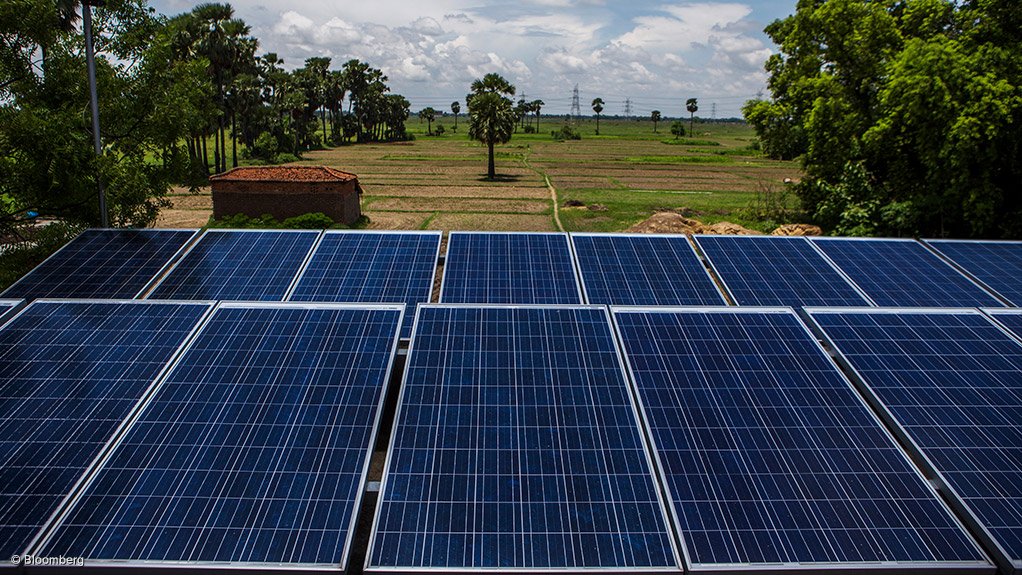Changes in generation technologies, including the sharp fall in solar photovoltaic (PV) costs, means that the evolution of electricity systems in sub-Saharan Africa (SSA) will need to involve more than one national grid, a new World Bank report argues.
“The path to universal electrification will also incorporate interconnected or stand-alone ‘minigrids’ and ‘microgrids’ serving small concentrations of electricity users, and offgrid home-scale systems,” the bank states in its latest Africa’s Pulse publication.
Microgrids, the report adds, represent an “interesting middle ground” between home-scale systems and the extension of national grids in accelerating electrification in many SSA countries.
However, evidence-based national electrification plans will be required so that the economic trade-offs between grid extensions and microgrids can be assessed, as well as to create a supportive climate for private investment into microgrid assets.
“Solar microgrids with battery storage are particularly of interest given the sharp declines in solar PV costs triggered by rapid technological advances,” the bank notes, adding that several SSA countries have been revising their power-sector regulations to reduce barriers to microgrid development.
Accelerating electrification is a high priority for governments in SSA, where almost 600-million of the region’s 1.1-billion citizens still lack access to electricity. The total installed capacity of the region stood at around 96 GW in 2015, compared with 325 GW in India and 1 519 GW in China.
The International Energy Agency projects that investments of around $52-billion a year, until 2030, would be required to achieve worldwide universal access, with about 95% of that investment required in Africa.
The Africa’s Pulse report notes that SSA electrification plans have, hitherto, focused on the expansion of national electricity grids using large-scale fossil fuel and hydroelectric generation facilities and, more recently, some grid-scale renewable-energy investments.
However, technical advances had led to questions as to whether SSA might be able to “leapfrog” over the traditional stages of national grid-based electrification, through a greater reliance on microgrids, as well as off-grid, home-scale systems.
The analysis concludes that, in areas with high potential for expanding energy-intensive productive uses, new industrial zones could be grid-connected sooner to foster economic development. In areas with lower potential demands for productive uses, meanwhile, microgrids could be deployed.
“Over time, as incomes rise and populations agglomerate in higher-productivity locations, the national grid can spread out. In the meantime, household and community quality of life in offgrid areas can be substantially improved at relatively low cost through the provision of basic electricity services using solar home systems.”
A major challenge for inducing private sector microgrid investment is confidence with respect to cost recovery, and what happens to microgrid assets when the grid begins to penetrate the service territory. Therefore, the bank argues that additional microgrid investments in the region would be valuable in order to gain a better understanding of their economics and how best to manage them.
“Support from the World Bank and other development partners for increasing the number of well-designed and soundly operated private minigrid investments in sub-Saharan Africa would be very valuable in shedding light on the benefits they can provide and the costs incurred.”
The report also emphasises the need for improved electricity sector governance in creating the conditions for effectively expanding electricity access.
It proposes that steps be taken to rationalise electricity pricing and to reduce regulatory barriers that limit private sector investment in grid or offgrid power production. Actions should also be taken to ensure that utility operations are more efficient and transparent and that independent sector regulation is fostered.
“These steps are essential to raise economic efficiency, provide a more positive investment environment, expand private-sector participation, and increase public confidence that the public interest is being served,” the report concludes.
Meanwhile, the Africa’s Pulse publication forecasts that the region’s growth rate will recover to 3.1% in 2018 and reach an average of 3.6% in 2019 and 2020.
As with the International Monetary Fund, which upgraded South Africa’s 2018 growth outlook to 1.5%, from below 1% previously, the World Bank raised its South African growth outlook for 2018 to 1.4%. The bank also forecast that South Africa would expand by 1.8% in 2019 and 1.9% in 2020.
Chief economist for the Africa region Albert Zeufack says growth has rebounded, but that it is not fast enough. “We are still far from precrisis growth levels.”
EMAIL THIS ARTICLE SAVE THIS ARTICLE ARTICLE ENQUIRY
To subscribe email subscriptions@creamermedia.co.za or click here
To advertise email advertising@creamermedia.co.za or click here











